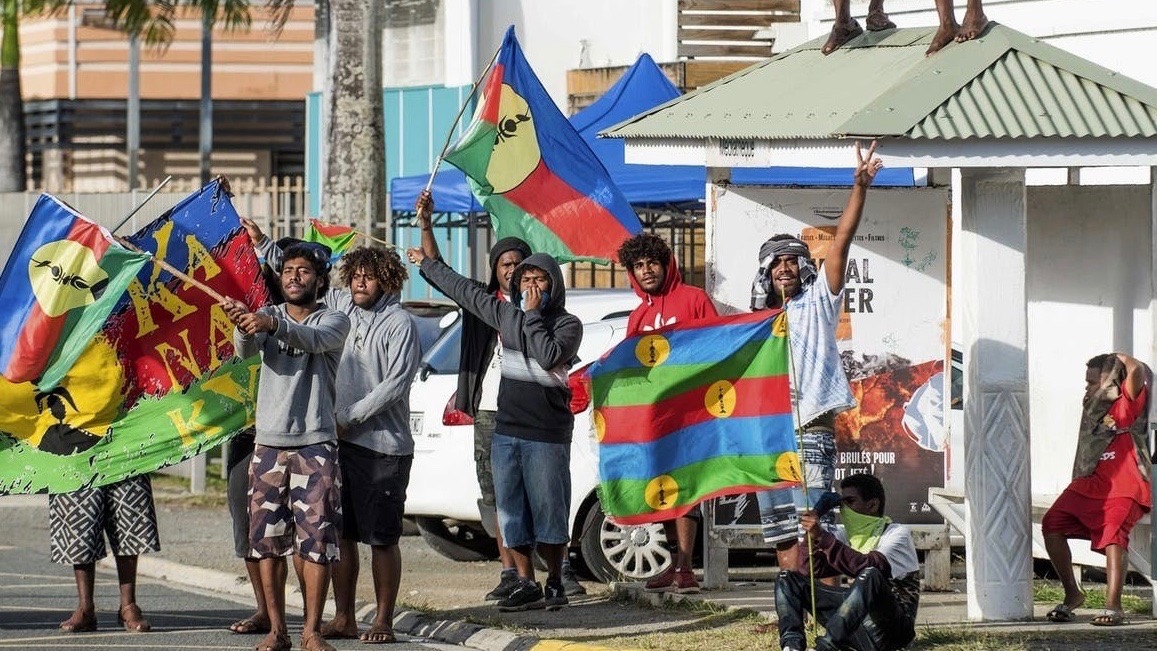Pro-independence groups and Indigenous sections in New Caledonia have denounced the outcome of the referendum on independence from France held on Sunday, December 12. The referendum was marked by massive abstentions with only 43.87% of the total electorate turning up to vote due to the boycott call given by pro-Independence groups in the southwest Pacific islands following the COVID-19 crisis. Pro-France sections who advocated ‘No’ to freedom from France have claimed victory after the results showed 96.5% votes against independence and only 3.5% in favor. Pro-independence coalition Kanak and Socialist National Liberation Front (FLNKS), which boycotted the polls, denounced the outcome of the referendum as over half the electorate did not vote. The FLNKS also slammed the celebrations by pro-France loyalist sections as meaningless.
New Caledonia is a ‘special’ overseas collectivity of France in the southwest Pacific near Australia, annexed by France in 1853 and regarded as a French Overseas Territory since 1946. From the 1970s, the indigenous Melanesian inhabitants of the islands, the Kanaks, under the leadership of the FLNKS have been agitating against the French colonization of the islands, resulting in violent conflicts and unrest.
The Socialist Party-led government in France tried to resolve the conflict during 1985 by offering sovereignty to the Kanak community. However, the plan faltered and tensions escalated to a deadly conflict by 1987. The Matignon Agreements of June 1988 and the Nouméa Accord of May 1988, fostered under the Socialist Party government in France, led to peace and stability in the islands with a framework for transition to self-governance. As part of the transition framework, two referendums on full independence from France were held in November 2018 and October 2020, in which 56.7% and 53.4% of the voters chose to remain with France, respectively.
The COVID-19 pandemic which shattered lives and livelihoods across the world also made its deadly impact in New Caledonia in September 2021. Around 280 people have died on the islands from COVID-19 so far. In the wake of this crisis, pro-independence sections, especially the Kanak community, had demanded the authorities to postpone the third and final referendum which was scheduled to be held on December 12. This demand was rejected by the authorities which led the FLNKS to give the call to boycott the referendum.
The pro-independence groups under the Strategic Committee for Independence of Non Participation (CSI-NP) have stated that “they do not recognize the legitimacy and validity of this confiscated vote. This referendum is not in accordance with the spirit and letter of the Noumea Agreement, decolonization process and also not in accordance with UN resolutions that put New Caledonia on the list of countries to decolonize.” Meanwhile, pro-French loyalist sections in New Caledonia and French president Emmanuel Macron have welcomed the outcome of the referendum.
On December 12, Fabien Roussel, leader of the French Communist Party (PCF), tweeted that “the outcome of the referendum is marred by a very political abstention and by the scale of the pandemic and the period of mourning. I address all support and the solidarity of the PCF to the Kanak people in their fight to make their voice heard and respected.”
The Communist Party of the Workers of France (PCOF) stated that “Macron and the government, who have clearly campaigned for no to independence, claim that this election has closed the issue of independence. There’s nothing like that. The weak participation of one party and the success of the call of pro-independence organizations is a disgrace to the representatives of the colonial state. The only result of this referendum is the support given by the colonial state to the most reactive sectors that want to keep all their privileges.”
Through this referendum, France is likely to further tighten its grip on New Caledonia. Despite strong opposition from local and anti-imperialist groups, France still continues its imperialist domination in several overseas territories like French Guinea, Martinique, Guadeloupe, Mayotte, Reunion, and overseas collectivities like French Polynesia, Saint Pierre and Miquelon.





